Speakers
Presenter
Organization
LABAT’2021 TOPIC
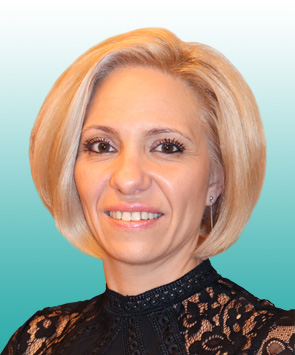
Short bio:
Dr. Albena Aleksandrova, is a sciencist at the Institute of Electrochemistry and Energy Systems (IEES) at the Bulgarian Academy of Sciences (BAS), Bulgaria. In 2009, she received a PhD degree in Electrochemistry from IEES – BAS. She joined to the research team of the Lead-Acid Batteries Department (LABD) in 2009. Her scientific interests are focused on theoretical and applied aspects of the electrochemistry and the technology of lead-acid batteries as the thermal performance of VRLA batteries, phase composition, structure and electrochemical properties of lead-acid batteries negative electrodes.

Paper to be presented:
Application of rice husks as green carbon material in lead-acid battery negative electrodes (poster)
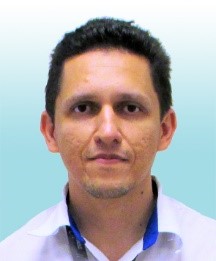
Short bio:
Mr. Ary L.C. Assuncao currently works in research, development and quality sectors at Pioneiro Battery Company, Brazil. He has a Bachelor of Chemical Engineering from Federal University of Rio Grande do Norte, Brazil. He received his Master of Mechanical and Aeronautical Enginering from the Aeronautics Institute of Technology, Brazil in 2012. Currently he is also working on his PhD in Space Sciences and Technologies / Materials Chemistry at Aeronautics Institute of Technology, São Paulo, where he studies the influence of graphenes and metalic additives on the performance and recharge and cycling mechanisms for lead-acid batteries, particularly on negative plates. His interests include the development of lithium-ion battery anodes for electric vehicles and post-lithium ion technologies.

Paper to be presented:
Influence of graphene layer variation on lead-acid negative plate performance, on Tuesday, 8 June, Session 1
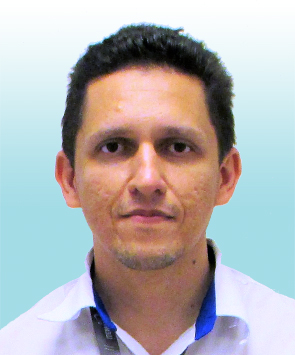
Short bio:
Mr. Ary L.C. Assuncao currently works in research, development and quality sectors at Pioneiro Battery Company, Brazil.
He has a Bachelor of Chemical Engineering from Federal University of Rio Grande do Norte, Brazil and received his Master of Mechanical and Aeronautical Engineering from the Aeronautics Institute of Technology, Brazil in 2012. Currently he is also working on his PhD in Space Sciences and Technologies / Materials Chemistry at Aeronautics Institute of Technology, São Paulo, where he studies the influence of graphenes and metalic additives on the performance and recharge and cycling mechanisms for lead-acid batteries, particularly on negative plates. His interests include the development of lithium-ion battery anodes for electric vehicles and post-lithium ion technologies.

Paper to be presented:
Evaluation of new technologies and possibilities for the future of the lead-acid battery using Technology Readiness Level (TRL) and Manufacturing Readiness Level (MRL) methodologies, (poster)
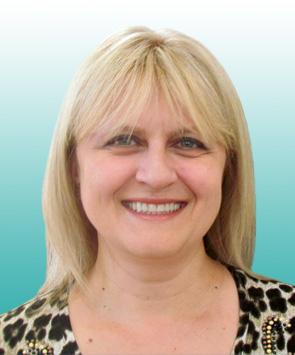
Short bio:
Dr. Paolina Atanassova has a Ph.D. in Chemistry from Sofia University, Bulgaria. She joined Cabot in 2003 as R&D project leader and has been working on developing advanced solutions for variety of energy storage applications such as fuel cells and batteries. Since 2010 Paolina has been leading the development of novel carbon additives for advanced lead acid batteries. Currently Paolina is Market Development Manager for Cabot’s Energy Materials business.

Paper to be presented:
Impact of carbon additives on current and next generation lead batteries – market and technology trends, PLENARY lecture
on Tuesday, 8 June 2021, Session 2
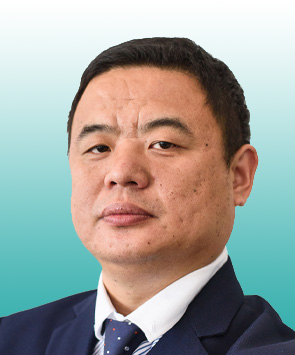
Short bio:
Taowei Ban, Deputy Director of the R&D Center of Shandong Jinkeli Power Sources Technology Co., Ltd. He has worked in the lead-acid battery industry since 2005 and has been engaged in the research and development and management of lead-acid battery technology in Fengfan and Tianneng. He joined Jinkeli in 2015 and in charge of research for lead acid battery additives. His lecture will be presented by Michael Chen.

Paper to be presented:
The interactions between Sodium Lignosulfonate and Carbon of the Lead-Acid Battery, (to be presented by Michael Chen)
on Tuesday, 8 June 2021, Session 1
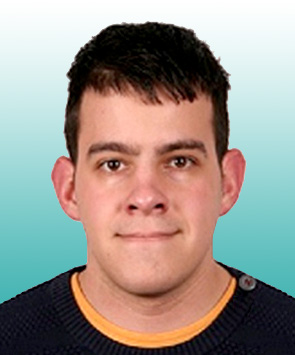
Short bio:
Mr. Krum Banov, holds two Master's Degrees on Chemical Engineering: from University of Chemical Technology and Metallurgy (UCTM), Sofia on German language and Technische Universitat Hamburg-Harburg TUHH, Hamburg, Germany. Mr. Banov is a PhD student at the Department of Inorganic and Electrochemical Products at UCTM. Involved in R&D and electrochemistry of active electrode materials for advanced lithium and lithium-ion batteries, supercapacitors, environmental protection, “green energy and technology” for batteries production.

Paper to be presented:
Active electrode materials obtained from industrial scraps (poster)
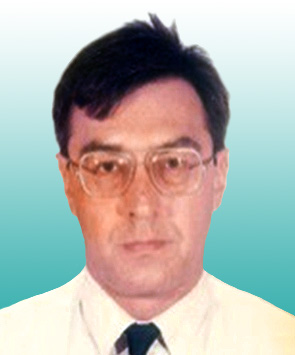
Short bio:
Prof.Dr. Branimir Banov works for the Institute of Electrochemistry and Energy Systems (IEES) of the Bulgarian Academy of Sciences (BAS). As a team leader he successfully has conducted the development of two lithium electrochemical systems in Bulgaria: lithium - sulfur dioxide and lithium - manganese dioxide. He was engaged in many industrial projects and started small-scale production of lithium batteries in Bulgaria in 1985. He has made good progress in developing of processes for production of high capacity lithium - manganese dioxide spinel for secondary lithium-ion batteries.

Paper to be presented:
Composite electrode with enhanced electrochemical performances (poster)
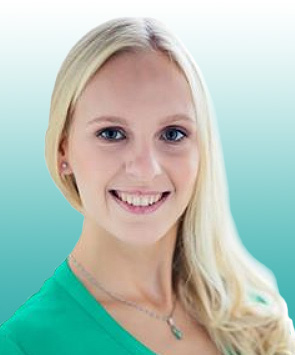
Short bio:
Mrs. Bauknecht received her Masters degree in Electrical Engineering from the Technische Universität Berlin in 2016. Since 2017 she has been working as a research assistant at the Faculty of Electrical Energy Storage Technology. Currently she investigates the structure and behavior of lead electrodes in order to improve dynamic charge acceptance (DCA) of batteries in micro-hybrid vehicle applications. Furthermore, she investigates the correlation between electrochemical impedance spectroscopy, DCA and high temperature durability test results of lead battery cells with and without additive enhanced negative plates.

Paper to be presented:
Electrochemical impedance spectroscopy on test cells,
on Friday, 11 June 2021, Session 7

Short bio:
Dr. Shaun Bruno has a diverse background in energy materials characterization working with thermoelectric, photovoltaics, novel synthetic methods, and synthesis of novel cathode materials for lithium ion batteries. His current focus is on formation optimization along with modeling the physics and chemistry from fill through formation in the bipolar lead acid battery technology developed at Advanced Battery Concepts.

Paper to be presented:
Determining pickling reaction rate constants in bipolar VRLA batteries,
on Thursday, 10 June 2021, Session 5
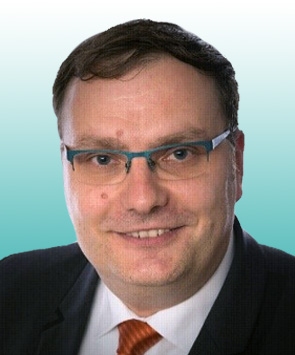
Short bio:
Dr. Rainer Bussar holds the position as Battery Additives Manager with PENOX in Germany. The field of responsibility is the development of new battery additives, scientific collaborations and technical support for the battery industry. He joined PENOX in 2018 after working as Director of R&D at EXIDE Technologies in Europe and has worked in the lead-acid battery business for 10 years.

Paper to be presented:
Improved plate performance of automotive batteries using tetrabasic seeding material – impact of porosity and electrode structure on electrical performance and cycle life,
on Thursday, 10 June 2021, Session 5

Short bio:
Sunho Choi is the senior development engineer of the R&D department of Microporous LLC, who is in charge of imparting fundamental materials engineering and membrane film process expertise to stage gate product and process development project teams during the design and implementation phase of the programs. Before he joined Microporous LLC, he previously worked at Northeastern University as Assistant Professor, after doing his Ph.D. at the University of Minnesota and the postdoc at Georgia Tech. He has 17 years of research and work experience in membranes and adsorbents development along with a lot of journal publications and several US and World Patents. He is currently implementing his fundamental understanding of membrane technology in enhancing and developing further the Microporous’ portfolio of technical separator products.

Paper to be presented:
Techniques to promote oxidation resistance in polyethylene battery separators,
on Thursday, 10 June 2021, Session 5
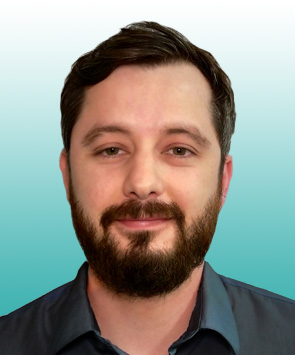
Short bio:
Dr. Heverson de Freitas works as research scientist in the Senai Institute of Innovation in Electrochemistry located in Curitiba, Paraná (Brazil). He has been working on developing new additives, materials and solutions for different energy storage applications, including Lead-Acid and Li-Ion Batteries. He received his degree in Chemistry from State University of Londrina, and his Master’s and Doctoral degrees from Federal University of São Carlos, investigating kinetic mechanisms of charge/discharge reactions of Lead-Acid Batteries.

Paper to be presented:
A simple charge acceptance theory for battery plates. Industrial and pilot plant lead-acid battery plates,
on Friday, 11 June 2021, Session 7
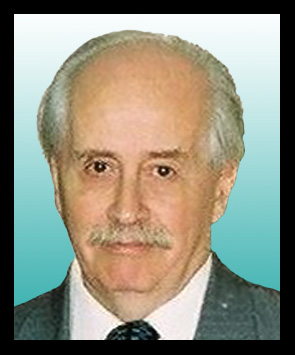
Short bio:
Prof. Carlos V. D´Alkaine was graduated at Buenos Aires University. He obtain a PhD at Polarographic Institute, Prague and then he was a research fellow at Chemistry Department, Free University of Brussels. Prof. D’Alkaine is the founder of the Applied Group of Electrochemistry, National Institute of Technology and Professor at Engineering Faculty, UBA, Argentine and a production manager at KURLAT Ltda, Argentine. He is a Full Professor and Emeritus Professor at Physical Chemistry, Federal University of São Carlos. São Carlos (SP) Brazil. Prof. D´Alkaine died on 23 February 2021. His paper will be presented by Dr. Heverson de Freitas

Paper to be presented:
A simple charge acceptance theory for battery plates. Industrial and pilot plant lead-acid battery plates, to be presented by Dr. Heverson de Freitas,
on Friday, 11 June 2020, Session 7
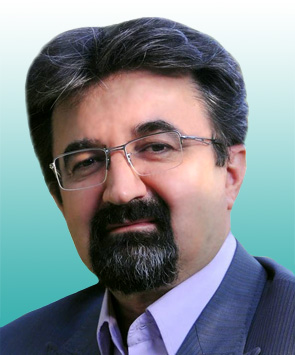
Short bio:
Prof. Vahid Esfahanian received his BSc from the University of Illinois at Chicago, USA in 1982 and his MSc and Ph.D. from the Ohio State University, USA in 1985 and in 1991, respectively. He is now a Full Professor in the School of Mechanical Engineering and the head of Vehicle, Fuel, and Environment Research Institute (VFERI), University of Tehran, Iran. His research interests include battery simulations and modeling and hybrid vehicles.

Paper to be presented:
Numerical simulation of the ultra-battery during high rate partial state of charge,
on Friday, 11 June 2021, Session 7
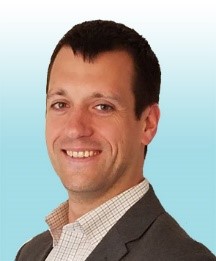
Short bio:
Dr. Paul Everill joined Black Diamond Structures from Molecular Rebar Design, the originators of MOLECULAR REBAR® technology. He was central in formulating, manufacturing, and developing their first carbon nanotube-based additives for lead acid batteries. Paul built the team and facilities to support product development over a 7-year period. In his role of Vice President, R&D, Paul oversees Lead-Acid and Lithium-Ion product development teams.

Paper to be presented:
MOLECULAR REBAR® enhances the corrosion layer of lead-acid battery positive plates to improve cycling in corrosion tests,
on Tuesday, 8 June 2021, Session 1
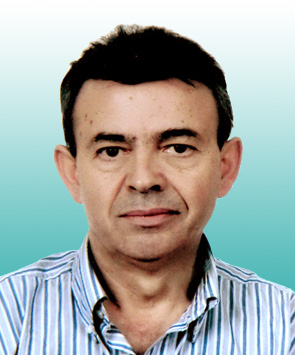
Short bio:
Mr. Melchor Fernandez is a chemical engineer who had worked in the R&D Laboratory of EXIDE Technologies, Spain for all his professional life. The development of the VRLAB technology was his most important focus. He devoted on this topic more than 8 years developing the VRLAB technology for SLI, Standby and Motive power and Cycling batteries. For the last 10 years he has been involved in the development of both the EFB and advanced batteries for HEV vehicles. He is retired and works as a battery consultant.

Paper to be presented:
Expanders for flooded and new EFB batteries for Start/Stop and HEV applications,
on Friday, 11 June 2021, Session 7

Short bio:
Dr. Athan Fox is a PhD graduate in Chemistry from the University of Cambridge. His role is to develop, scale up and commercialise technology to address the world’s challenges in sustainability, recycling and the circular economy. Athan’s philosophy in life is: “if there’s only two roads ahead of you, make a new path.” His experience includes organic chemistry, patent drafting and prosecution, technology transfer and fund-raising for research and technology. Between 2016 and 2019, Athan helped raise more than £2m in grant-funding and was selected to represent the UK and the European Union tech sectors on overseas government-led missions.

Paper to be presented:
Journey of the molecule: from the waste to paste. A hydro-metallurgical process for the recycling of spent battery paste,
on Thursday, 10 June 2021, Session 5
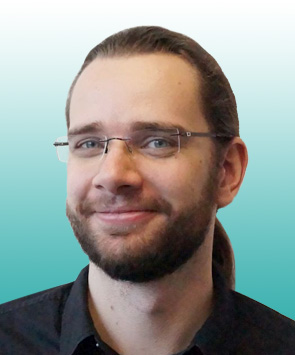
Short bio:
Mr. Marcel Franke has received his Bachelors and Masters’ degree in Electrical Engineering from the Technical University Berlin in 2014 and 2015 respectively. Since then he is working as a research assistant at the chair of Electrical Energy Technology at TU Berlin. His main research topic is the modelling and state estimation of secondary batteries.

Paper to be presented:
HeimBMS: VRLA battery state estimation and balancing in off-grid battery systems,
on Thursday, 10 June 2021, Session 5
Dr. Jun Furukawa
PLANTE Medallist, The Furukawa Battery Co., Ltd., Japan
LEAD-ACID BATTERY TECHNOLOGY
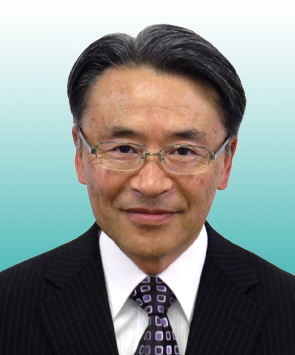
Short bio:
Dr. Jun Furukawa joined the Furukawa Battery in 1980 and is now Senior Fellow of the Furukawa Battery. He holds more than 150 patents in the battery area. He was awarded the Gaston Plante Medal of the Bulgarian Academy of Science in 2017.

Paper to be presented:
Development of technologies for automotive lead-acid batteries,
on Wednesday, 9 June 2021, Session 3
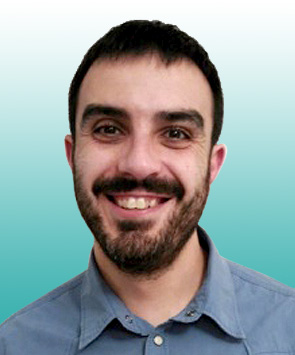
Short bio:
Dr. Miguel García works as research scientist in the R&D Lab of Exide Technologies located in Azuqueca de Henares, Guadalajara (Spain). His work focuses on the electrochemical properties of new battery formulations. He received his degree in Chemistry and his doctoral degree in the field of microfluidics and electrochemical sensors in Alcalá University. During the PhD and postdoctoral stay in Twente University he developed different electrochemical sensors.

Paper to be presented:
Conductive compounds as positive active material enhancers,
on Tuesday, 8 June 2021, Session 1
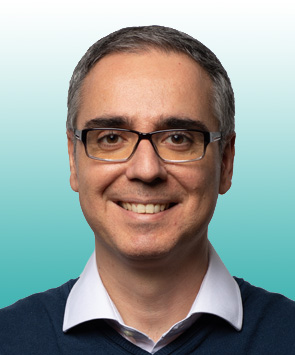
Short bio:
Dr. Garcia Perez received a Master in Chemistry in Valencia University and PhD in Ceramic Processes and Surface Treatment , ENSCI, Limoges University, France (2007). Dr. Garcia joined Imerys in 2007 occupying different positions in several divisions
always related to R&D and Innovation. In 2016 he moved to Imerys Graphite & Carbon division and from November 2018 worked as R&D Applications Leader EU/US. Since January 2020 Garcia added the responsibility on Lead Acid applications research.

Paper to be presented:
High performance carbons for advanced lead-acid batteries,
on Tuesday, 8 June 2021, Session 1
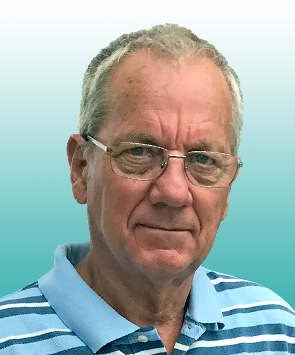
Short bio:
Dr. Herbert Giess started his job as Program scientist at EURATOM Nuclear Research Centre Ispra/Italy and Petten/Netherlands in 1965. Then he was a project leader on maintenance-free Lead Acid Batteries BATTELLE Research Centre Geneva/Switzerland. Dr. Giess was for 5 years a project leader at Gould Inc., USA. Since 1983 to 2007 he was a director at OERLIKON STATIONARY BATTERIES Aesch/Switzerland, responsible for VRLA innovation, design and testing, and development, design and qualification of the Oerlikon Compact Power® stationary VRLA product line. Dr. Giess is a consultant on VRLA technology transfer and implementation in China.

Paper to be presented:
Charge acceptance issues when a VRLA/AGM cell is operated with the IEC 61427-2 clause 6.2 and Sandia PNNL 5.3.2 profiles simulating frequency-regulation duty in power grids,
on Friday, 11 June 2021, Session 7
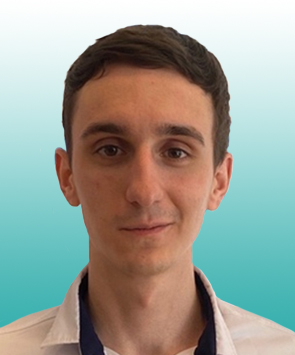
Short bio:
Gritsenko Stanislav Dmitrievich, is 2-nd course postgraduate student at the Saratov State University, Institute of Chemistry. Research interests: lead-acid batteries, negative electrode modification, nanocarbon structures, impedance spectroscopy of chemical power sources.

Paper to be presented:
Impedance of charged negative electrodes of lead-acid batteries with the addition of nanostructured carbon (Poster),
The relationship of the structural and electrochemical characteristics of negative electrodes with the addition of nanostructured carbon for lead-acid batteries (Poster)

Short bio:
After defending his PhD thesis in Process Engineering at the Mining school of Saint Etienne (France) Dr. Nicolas Guillet was two years on a post-doctoral position in electrocatalysis at INRS-EMT in Varennes (Canada). He joined CEA-Liten in Grenoble (France) in 2005. As a Senior expert in the field of electrochemical storage and conversion, he has been involved in numerous projects related to different systems (fuel cells, electrolyzers, batteries, etc.). At present his research activities are focused to study instrumentation of batteries.

Paper to be presented:
Ultrasonic interrogation studies of AGM-VRLA cells,
on Friday, 11 June 2021, Session 7
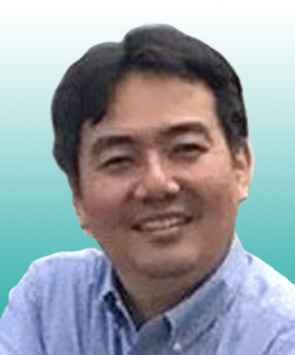
Short bio:
Dr. Nobumitsu Hirai is a Professor of Department of Chemistry and Biochemistry, National Institute of Technology, Suzuka College, Japan. He has a Bachelor of Engineering from Kyoto University in 1992, a Master of Engineering from Kyoto University in 1994, and a PhD from Osaka University in 2000. He had got prices; Encouragement Prize from The Japan Institute of Metal and Materials in 2001, Encouragement Prize from Molten Salts Committee, The Electrochemical Society of Japan in 2005, etc. He has published more than 100 papers including 15 papers of Journal of Powers Sources

Paper to be presented:
The effect of lignosulonate and its functional group on the electrochemical reaction on Pb flat electrode,
on Tuesday, 8 June 2021, Session 1
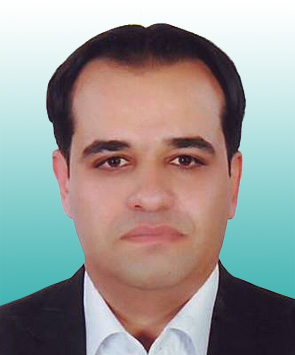
Short bio:
Dr. Ali Alagheband Hosseini studed at the Chemical Engineering, Faculty of Engineering, Islamic Azad University of Quchan, Iran (1998-2002). He got a MSc in Industrial Engineering at the Industry and Mining Training Center, Mashhad, Iran in 2015. Dr. Hosseini was a R&D and Process Engineering Department Director at Nirougostaran Khorasan Company 2006-2017 (11 Years). Now he is a Technical Manager at SST Co. (2017-Present)

Paper to be presented:
Electrochemical evaluation of various commercial expanders for lead-acid battery application (poster)
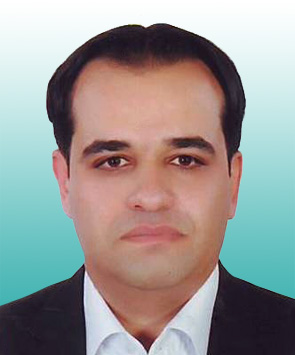
Short bio:
Dr. Ali Alagheband Hosseini studed at the Chemical Engineering, Faculty of Engineering, Islamic Azad University of Quchan, Iran. (1998-2002). He got a MSc in Industrial Engineering, Industry and mining training center, Mashhad, Iran in 2015. Dr. Hosseini was a R&D and Process engineering Department Director at Nirougostaran Khorasan Company 2006-2017(11 Years) and a Technical Manager at SST Sarv Sanat Toos Co. (2017-Present)

Paper to be presented:
Optimization of grid configuration by investigating its effect on positive plate of lead-acid batteries via numerical modeling (poster)
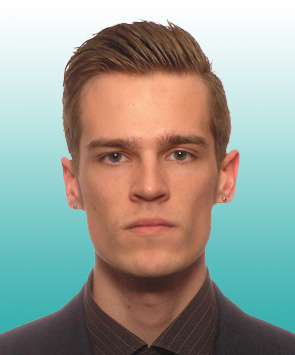
Short bio:
Arminas Ilginis is a 3rd year PhD student at Kaunas University of Technology. Research primarily focused on electrochemistry, lead-acid batteries, applications of graphite felt.

Paper to be presented:
Electrochemical measurements of single and coupled lead-graphite felt electrodes in sulfuric acid solution (poster)
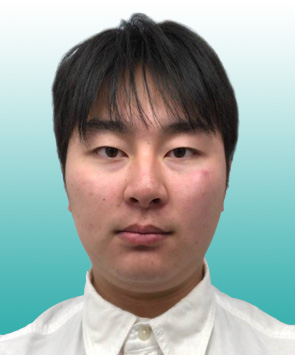
Short bio:
Mr. Yuki Imamura is a PhD candidate of Nagaoka University of Technology, Japan. He is now studying on the interfacial properties of the negative electrode of lead-acid battery under a guidance of professor Munehiro Kimura. Prof. Kimura’s group has
published a variety of articles with regards to the observation of liquid crystal-solid interface by means of atomic force microscopy. Based on a series of these experiences, Imamura started research on lead-acid batteries, especially with using the frequency modulation atomic force microscopy.

Paper to be presented:
In-situ measurement of lead electrodes combining cyclic voltammetry and amplitude modulation atomic force microscopy: growth of lead sulfate crystals,
on Tuesday, 8 June 2021, Session 1
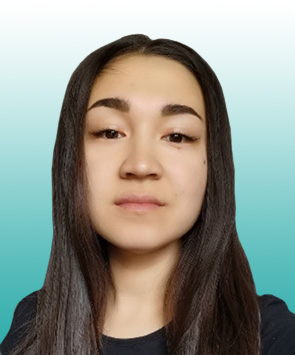
Short bio:
Aniya Izbasarova is a graduate student of the Institute of Chemistry, Saratov State University, Russia. Her research interests are the multi-layer separators based on absorbent glass matrix and polymer membrane for sealed lead-acid batteries.

Paper to be presented:
Multi-layer separators based on absorbent glass matrix and polymer membrane for sealed lead-acid batteries (Poster)
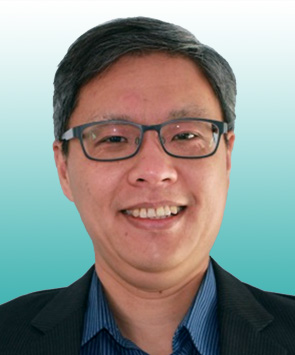
Short bio:
Dr. Yu-Hua Kao has a PhD in Materials Science from Massachusetts Institute of Technology, USA. Prior to joining Cabot Corp., he was leading new product development efforts in lithium battery materials business as well as electronic materials business at the Dow Chemical Company. Currently Yu-Hua is Sr. Scientist for Cabot’s Energy Materials business, leading advanced carbon additive formulation development for lead battery applications.

Paper to be presented:
High DCA formulated blends for advanced lead batteries,
on Friday, 11 June 2021, Session 7
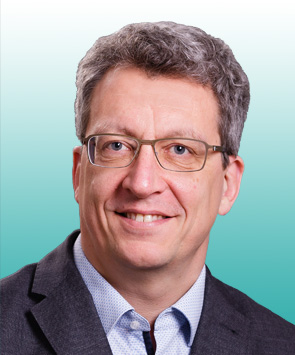
Short bio:
Dr. Eckhard Karden works as Technical Specialist Energy Storage for the European branch of Ford’s corporate Research and Advanced Technology. He has been involved in specification, technology development and verification of batteries and monitoring sensors for stop/start, microhybrid and driver-assistance systems for more than two decades now. He holds a diploma in Physics and a PhD in Electrical Engineering from RWTH Aachen University.

Paper to be presented:
Improving Dynamic Charge Acceptance for automotive 12V batteries: Motivation – Problem Definition – Status - Questions,
on Friday, 11 June 2021, Session 7
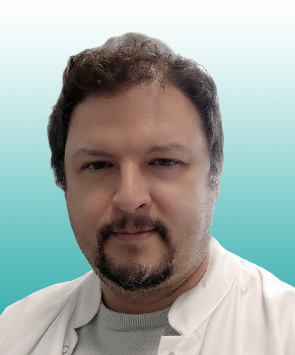
Short bio:
Dr. Angel Kirchev is senior expert at the Laboratory for Stationary Renewable Energy Storage in the French Commission of Atomic and Alternative Energies (CEA) since 2005. He started working on lead-acid batteries research and development in the
year 2000 as part of the team of Professor Detchko Pavlov in the Bulgarian Academy of Sciences, where he obtained his PhD several years later. Dr. Kirchev works on the development of components and battery management strategies for various energy storage systems. He holds a research habilitation degree (HDR) in the domain of the materials and the chemical engineering from the University of Grenoble since 2013.

Paper to be presented:
Influence of phosphate species on the operation of titanium-supported lead dioxide electrodes,
Thursday, 10 June 2021, Session 5
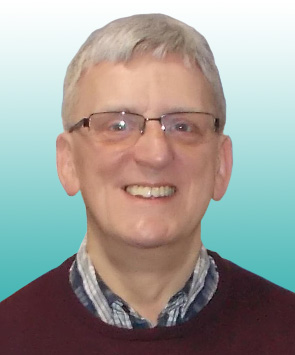
Short bio:
Ian Klein is a chemist and has a master’s degree in environmental science. Before joining Penarroya Oxide, Ian was working as Laboratory and Quality Manager at Heubach GmbH, a German producer of pigments, and at HarzerZinkoxyde GmbH where he did some research work to develop optimised zinc oxides for tires. Late in 1999, he joined Penarroya Oxide in Cologne, Germany to assume the position of the Quality and Laboratory Manager and implemented the R&D department. His research and development work was focussing on materials for lead-acid batteries and finally resulted in the tetrabasic lead sulphate seeding material TBLS+. At the end of 2015, Ian became the Head of Battery Additives for PENOX GmbH.

Paper to be presented:
Red lead for lead-acid batteries, effects of different product characteristics,
on Thursday, 10 June 2021, Session 5
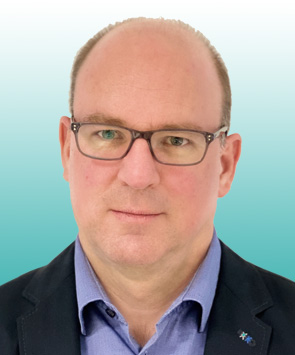
Short bio:
Dr. Ingo Koch studied Chemical Engineering at the Technical University of Clausthal. In 2000 he joined Johnson Controls and held various positions in the Product Development team in the field of battery simulation, battery management systems, product development, electrochemical methods, and requirements analysis. Since 2018 he has been responsible at Frötek-Kunstofftechnik GmbH for the product development of battery components as Technical Director Battery.

Paper to be presented:
Battery Gas Venting – an underestimated impact on battery water loss,
on Friday, 11 June 2021, Session 7
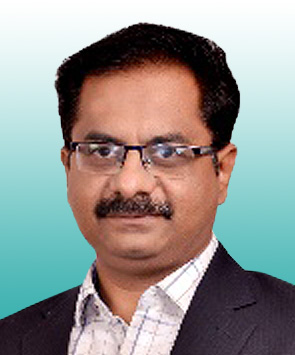
Short bio:
Mr. Yogesh Kulkarni is passionate about Power Electronics conversion equipment’s, having engineering background with experience in designing high power converters for several industrial processes. He is working with lead-acid battery formation rectifiers and test equipment, improved formation rectifier reliability, efficiency and continuously working towards improving formation process through modest power electronics technologies.

Paper to be presented:
Modern formation equipment for lead acid batteries (Poster)
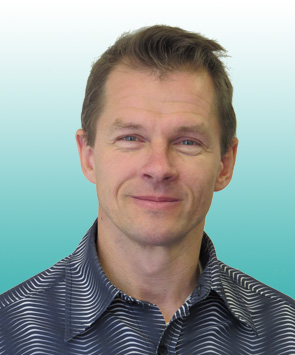
Short bio:
Dr. Goetz Langer worked on in situ spectroscopy for interfaces in SOFC. He received a PhD in solid electrolyte electrochemistry at the University of Hannover (1998). In 1999 he joined the R&D staff of HOPPECKE Batteries.
He worked as a process engineer on definition and optimization of different production processes in SLI production and still works on industrial lead acid battery production. His experience includes the development of lead acid BMS algorithms and the behavior of lead-acid batteries in different applications.

Paper to be presented:
Challenges in the development of high-performance long life lead-acid batteries,
on Wednesday, 9 June 2021, Session 3
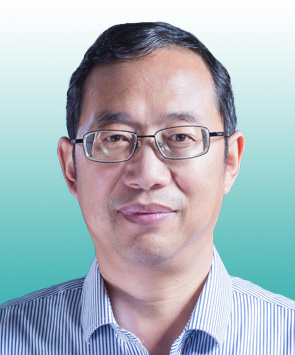
Short bio:
Dr. Lixu Lei is a professor of Southeast University, China. He is now working on cyclic production of lead-acid battery based on physical separations of the components of spent batteries and aqueous solution chemistry of the lead compounds.

Paper to be presented:
Lead-acid batteries based on chemically prepared (basic) lead sulphate,
on Wednesday, 9 June 2021, Session 3
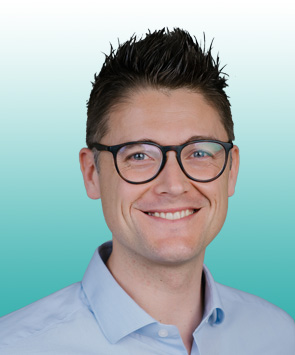
Short bio:
Mr. Nullo Madella works as Technical Sales Manager for Microporous GmbH, Austria. He has 8 years of experience in lead acid battery R&D and production, , leading developer and manufacturer of separators for lead acid batteries. Since 1934, Microporous has firmly established its reputation for quality and innovation, offering the broadest line of high-performance battery separators to a global customer base.

Paper to be presented:
Techniques to promote oxidation resistance in polyethylene battery separators, (To be presented by Sunho Choi),
on Thursday, 10 June 2021, Session 5
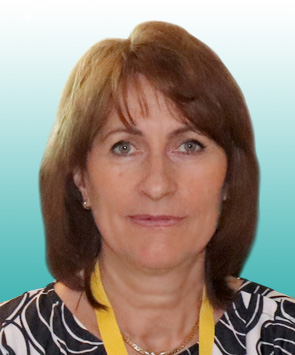
Short bio:
Dr. Maria Matrakova has a PhD degree in Electrochemistry from Institute of Electrochemistry and Energy Systems at the Bulgarian Academy of Sciences. She has ample experience in conducting fundamental and applied research in the field of lead-acid batteries as member of the research team of the Lead-Acid Batteries Department (LABD) of IEES-BAS. She studies the impact of new additives on the phase composition, structure and electrochemical properties of lead acid battery electrodes, employing various techniques for materials characterization.

Paper to be presented:
Influence of additives in the active materials of lead batteries on the performance of the positive plates (poster)
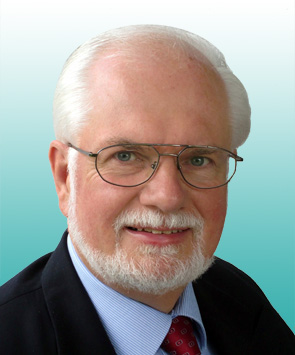
Short bio:
Dr. Eberhard Meissner has been working since 1985 with VARTA Batterie AG and Johnson Controls Power Solutions (now Clarious), managing for 27 years various development teams (Lead-Acid and Lithium-Ion Batteries), followed by an internal expert role.
After his retirement in 2019, he continues esp. analyzing the micro-scale mechanisms behind the macro-scale effects in battery behavior. The Bulgarian Academy of Sciences awarded Eberhard Meissner with the 2014 Gaston Planté Medal.

Paper to be presented:
Particle size and surface shape of active materials in lead-acid batteries: impact from free surface energy,
on Wednesday, 9 June 2021, Session 3
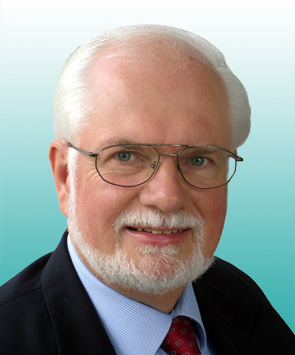
Short bio:
Dr. Eberhard Meissner has been working since 1985 with VARTA Batterie AG and Johnson Controls Power Solutions, managing for 27 years various development teams (Lead-Acid and Lithium Ion Batteries), followed by an internal expert role. After his retirement in 2019, he continues esp. analyzing the micro-scale mechanisms behind the macro-scale effects in battery behavior. The Bulgarian Academy of Sciences awarded Eberhard Meissner with the 2014 Gaston Planté Medal.

Paper to be presented:
Lead-acid batteries in Partial-State-of-Charge operation: A challenge for kinetics of battery recharge, PLENARY lecture,
on Friday, 11 June 2021, Session 8
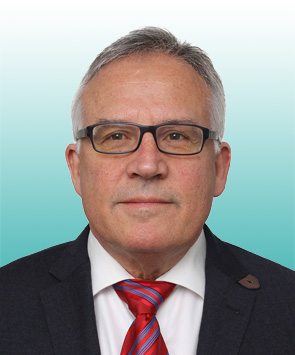
Short bio:
Dr. K-D Merz is a graduate in chemical engineering at Technical College in 1980. He worked at the R&D at Sonnenschein Batteries for 7 years. From 1993 to 1999 he was Marketing and Product Manager for EV and HEV Applications. From 2000 to 2007 he was Director Marketing for Motive Power Products for Exide Technologies. In 2008 he joined Abertax Technologies to work on product for Energy storage, sustainable energy generation and EV and HEV technology. He consults several battery companies in Europe, Asia and USA. Dr. Merz is a council member of the Abertax Group of companies.

Paper to be presented:
State-of-art in formation and filling process for VRLA batteries in GEL technology,
on Wednesday, 9 June 2021, Session 3
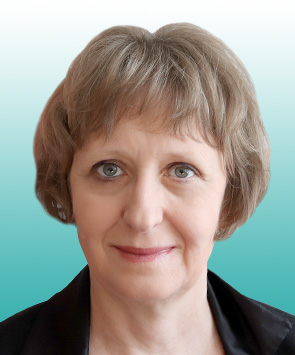
Short bio:
Dr. Yovka Milusheva, is a scientist belonging to the research team of the Lead-Acid Batteries Department of Institute of Electrochemistry and Energy Systems (IEES) at the Bulgarian Academy of Sciences Bulgaria. She holds a master's degree in chemical engineering and industrial ecology from the University of Chemical Technology and Metallurgy Bulgaria. In 2013, she received a PhD degree in Electrochemistry from IEES – BAS. Her scientific interests are focused on theoretical and applied aspects of the electrochemistry and the technology of lead-acid batteries.

Paper to be presented:
Physicochemical characterization of the effect of the additive BB on the active masses of lead-acid batteries (poster)
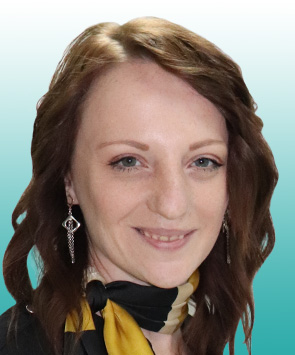
Short bio:
Dr. Borislava Mladenova works for the Institute of Electrochemistry and Energy Systems (IEES) of the Bulgarian Academy of Sciences (BAS) since 2017. In 2019 she received a PhD degree of University of Chemical Technology and Metallurgy (UCTM), Sofia. She holds a master's degree in chemical engineering from University of Chemical Technology and Metallurgy (UCTM). Her scientific interests are in the field synthesis of nanosized materials, theoretical and applied aspects of the electrochemistry, green energy.

Paper to be presented:
Carbon xerogel as electrode material for energy storage applications (Poster)
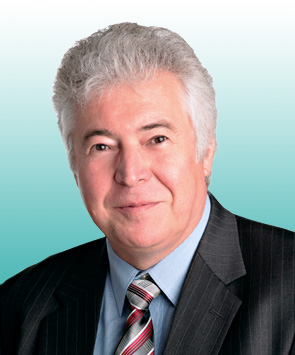
Short bio:
Boris Monahov devoted 40 years to batteries, mainly lead-acid. His experience comprises 25 years of basic electrochemical research (with the team of Prof. D. Pavlov as Associate Professor), followed by 6 years of research and technology development in the battery industry as Chief Electrochemist of Firefly Energy Inc., USA (lead ― carbon foam batteries). For 9 years (in the period 2009-2018, three 3-years programs) he was the Program Manager of the Advanced Lead-Acid Battery Consortium (ALABC), located in the USA where he managed multi-project programs for the global lead and battery industry. Since 2019 he is managing the global R&D battery optimization program of Wavetech GmbH.
He has published over 60 articles on battery electrochemistry, and has 3 patents. Boris is an active member of the Electrochemical Society. In 2012 he was awarded by EPLS’s BEST magazine award for outstanding technical contributions by an individual to the lead-acid battery industry. In 2014 he was awarded by the Gaston Plante medal of the Bulgarian Academy of Sciences for fundamental contributions to the lead-acid battery science and technology.
Boris Monahov is habilitated (1996) as senior research scientist by the Bulgarian Academy of Sciences. He holds a PhD degree in electrochemistry from the Bulgarian Academy of Sciences (1994) and a master’s degree in physics from the University of Sofia, Bulgaria.
Currently, Dr. Monahov is an advisor for CBI and Chief Science Officer at Wavetech GmbH, Germany.

Paper to be presented:
Challenges for lead batteries and ways for them to continue being the most used electrochemical power source, (PLENARY Lecture)
on Thursday, 10 June 2021, Session 6
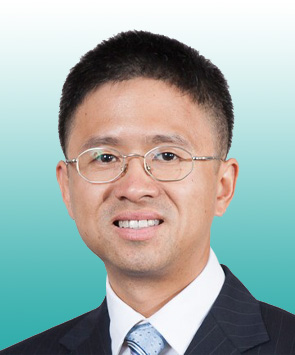
Short bio:
Dr. Collin Mui is the Lead Silicon Engineer at Gridtential Energy, Inc., and he is responsible for the development of the silicon wafer current collector used in Gridtential’s Silicon JouleTM technology. Collin’s career in material and process development started at Novellus Systems, Inc. (merged with Lam Research), where he worked with an interdisciplinary team of engineers to develop processes and equipment for semiconductor wafer manufacturing. Collin’s experience in semiconductor deposition processes led him into his first battery startup, Amprius Inc., where he contributed to the development of nanotechnology materials for Li-ion batteries. Collin then ventured into Gridtential Energy in 2012 during its founding stage. Dr. Collin Mui holds a B.A.Sc. in Chemical Engineering (Honours Chemistry) from the University of British Columbia, and a Ph.D. in Chemical Engineering with a minor in Electrical Engineering from Stanford University. He has authored more than 20 scientific publications, and he holds several patents and patent applications worldwide.

Paper to be presented:
Formation of corrosion layers in bipolar lead acid batteries and their implications on power performance (Poster)
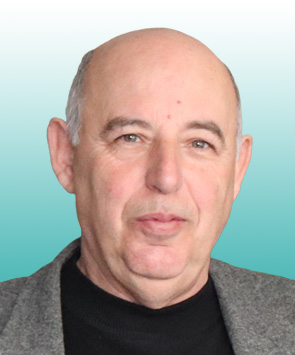
Short bio:
Prof.Dr. Vesselin Naidenov received his MSc and BSc degrees in Chemistry engineering from the University of Chemical Technology and Metallurgy, Sofia, Bulgaria. He joined the Institute of Electrochemistry and Energy Systems (IEES-BAS) in 1986 and obtained PhD degree in 2006. He was promoted to professor in 2015. Prof. Naidenov is involved in fundamental electrochemical and technological research in the field of lead-acid batteries. He is author of 28 papers published in scientific journals with more than 200 citations and invento of 19 patents. Prof. Naidenov is a co-author of the book “Modern Lead-Acid Batteries”, edited by A. Rusin, Saint-Petersburg, 2017.

Paper to be presented:
About the crystallization processes on the active masses of lead-acid batteries,
on Wednesday, 9 June 2021, Session 3
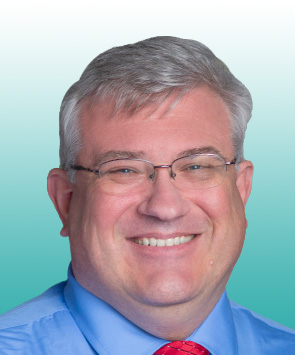
Short bio:
Mr. W. Niedermeyer is a CTO, EVŌQ Nano and a founder of Attostat, now EVŌQ Nano. Mr. Niedermeyer is an inventor, entrepreneur, physicist and mathematician. As an applied physicist, he specializes in developing processes that measure and create cutting-edge nanomaterial. His patents include the Attostat Multiple Laser Interferometric Method of nanomaterials production, as well as seven additional provisional patents for specialized applications of those nanomaterials. Prior to founding Attostat, he held senior leadership positions in many organizations including government agencies, foreign economic development programs and several tech companies. He is a member of the American Physical Society and the Project Management Institute, among several others. He holds a B.S. in Applied Physics and Mathematics from the University of Utah.

Paper to be presented:
Unique gold nanoparticles overcome crystal growth impedimetric effects of PCL1 in lead-acid batteries, on Tuesday, 8 June 2021, Session 1
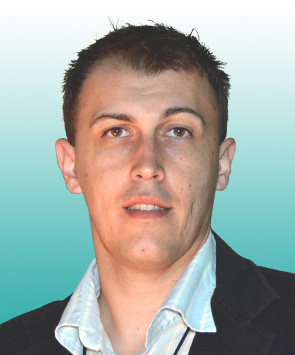
Short bio:
Dr. Plamen Nikolov received a PhD degree in Electrochemistry from Institute of Electrochemistry and Energy Systems (IEES) at the Bulgarian Academy of Sciences under the guidance of Prof. Detchko Pavlov. His scientific interests are focused on theoretical and applied aspects of the electrochemistry and the technology of lead-acid batteries. His scientific contributions are related to modification of the phase composition, structure and electrochemical properties of lead-acid battery negative electrodes and a variety of applications by the use of carbon additives to the negative active mass.

Paper to be presented:
Lead battery positive active mass structural changes during PSoC operation and electrolyte additives improving battery cycling endurance in automotive applications,
on Wednesday, 9 June 2021, Session 3
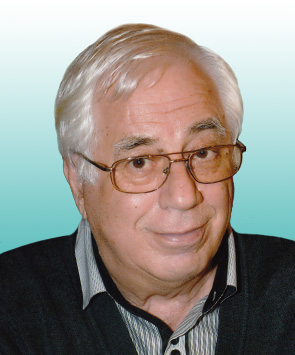
Short bio:
Dr. Geno Papazov has been working as a sinior research scientist at the Institute of Electrochemistry and Energy Systems (former CLEPS) for more than 52 years. His research was on the lead-acid battery technology and on the battery operation. He has presented a course of lectures on lead-acid battery technology in many battery companies and universities all over the world. He was awarded the Gaston Plante Medal of the Bulgarian Academy of Science in 2017.

Paper to be presented:
Conference Chairman
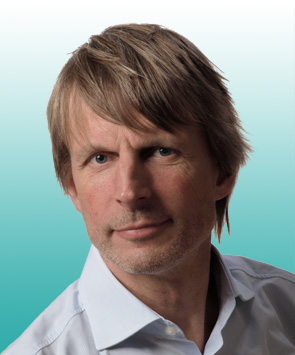
Short bio:
Dr. Christian Papmahl studied at University of Dortmund, Germany. He started his career as a Process engineer at Hawker GmbH, Hagen, Germany. In 2001 he become a co-founder of Inbatec GmbH, Hagen, Germany. Since then Dr. Papmahl has been a Managing Director of Inbatec GmbH.

Paper to be presented:
News and optimization on formation with acid recirculation technology, (Presenter: Mr. Tristan Woeffler)
on Wednesday, 9 June 2021, Session 3
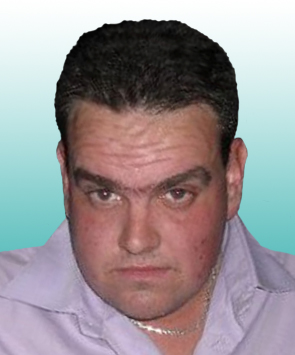
Short bio:
Dr. Todor Petkov, is a scientist at the Institute of Electrochemistry and Energy Systems (IEES) of the Bulgarian Academy of Sciences (BAS). In 2018 he received a PhD degree in Electrochemistry from the University of Chemical Technology and Metallurgy (UCTM), Sofia. He holds a master's degree in chemical engineering from UCTM. His scientific interests are focused on theoretical and applied aspects of the electrochemistry, technology of active electrode materials for advanced lithium and lithium-ion batteries, environmental protection and “green energy and technology” for batteries production.

Paper to be presented:
Investigation of Pb3O4 as a negative active material in aqueous lithium ion battery (Poster)
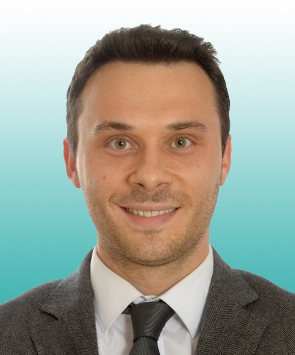
Short bio:
Dr. Marco Robotti earned a PhD in engineering and advanced technologies from the University of Barcelona (Spain). He held a R&D Innovation Product position at Fiamm Energy Technology S.p.A. in Italy. With more than 2 years of experience in the lead- acid battery industry, he is part of Hammond’s technical team as a Materials Engineer at Hammond Expanders UKs.

Paper to be presented:
Examination of the effects of surfactants on crystal growth and curing of the positive active material,
on Wednesday, 9 June 2021, Session 3
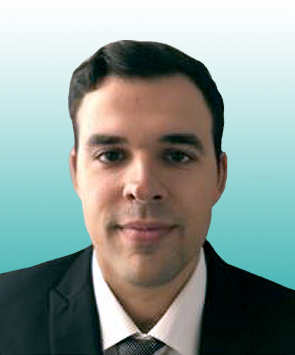
Short bio:
Mr. Alberto Fco. Romero Rodríguez is a PhD student at R&D Electric Lab Engineer in Exide Technologies. He has previously worked in SPECTRA project (Smart Personal CO2-Free Transport) as pre-PhD student in Autónoma de Madrid University through FUAM scholarship. With experience in the development of fuel cell during the end-of-degree project and experience in the improvement of lead-acid batteries since 2018.

Paper to be presented:
Effect of residual elements in lead-acid batteries,
on Thursday, 10 June 2020, Session 5
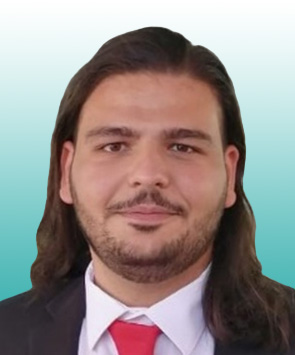
Short bio:
Matteo Rossini (born in Palermo,1996) is a master degree student in Chemical Engineering at the University of Palermo. In March 2021 he graduated defending the thesis “Nanostructured and Nanocomposite Negative Electrodes for Lead-Acid Batteries with Reduced Graphene Oxide”. He is interested in nanostructured materials for batteries and electrochemical power sources technologies.

Paper to be presented:
Nanostructured lead-acid negative electrode with reduced grapheхe oxide,
on Tuesday, 8 June 2021, Session 1
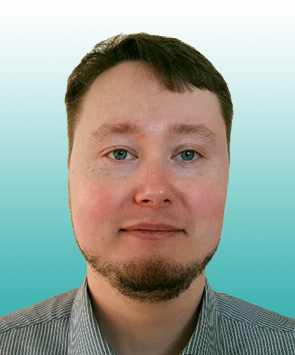
Short bio:
Mr. Vladimir Ruzhnikov has received Bachelor of Information Technology degree in 2010 and Master of Applied Mathematics and Physics degree in 2012 at St Petersburg University. Since 2010 he had worked in a charged particle acceleration field. Since 2015 he has been working in AC Buster Ltd. as a lead software developer of real-time battery diagnostic systems for lead-acid batteries.

Paper to be presented:
Mathematical modelling of changes in the electrochemical parameters of lead-acid cells under various conditions and operation modes. (Poster)
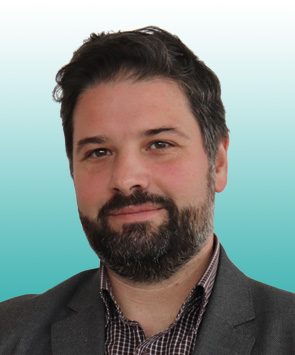
Short bio:
Mr. Boris Shirov is assistant professor at Lead-acid Batteries Department, IEES - BAS. Boris holds MSc in Engineering from the Technical University of Sofia. He has worked in the field of telecommunications and later joined a private R&D laboratory as a researcher. Boris was involved in R&D projects in the fields of security, vehicle emissions control and lead-acid batteries. He is currently a PhD student at the IEES of Bulgarian Academy of Sciences.

Paper to be presented:
Optimized battery formation with Crystal Control Technology of WaveTech,
on Thursday,10 June 2021, Session 5
Prof.DSc. Essen Suleimenov
Kazakh-BritishTechnical University, Republic of Kazakhstan
LEAD-ACID BATTERY TECHNOLOGY
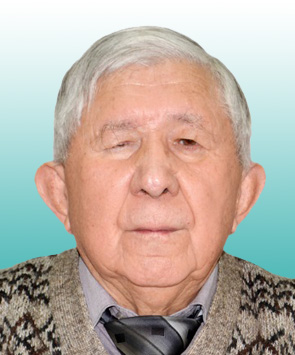
Short bio:
Prof. E. N. Suleimenov was graduated from the Kazakh Mining and Metallurgy Institute, metallurgy faculty in 1960. He was assigned to work in the Institute of Metallurgy and Ore Benefication of the Academy of Sciences of Kazakh SSR. During the work in IMOB, he performed job duties as a senior laboratory technician, deputy director for science, acting director of the Institute (2004). He also has a teaching experience. Now he is a deputy head of the “Advanced materials and technologies” laboratory of the Kazakh-British Technical University

Paper to be presented:
Influence of electric current parameters on resistance of inorganic water solutions (poster)
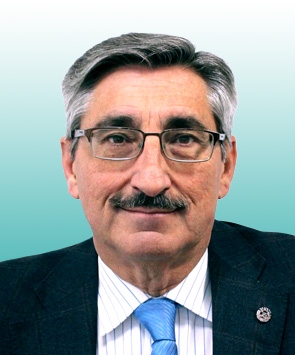
Short bio:
Dr. Francisco Trinidad holds an MSc and PhD from the University of Madrid. In 1977, he joined Tudor R&D group and was promoted as the Industrial Development Director in 1992. Following Exide’s acquisition of the company, he became its Research Director in Paris, then the Development Director of Transportation Europe, and more recently the Director of Battery Technology in Exide Europe. During more than 42 years of experience with several electrochemical systems, he has been the author of more than 60 papers and 20 patents.

Paper to be presented:
Charge acceptance vs Water loss: contradictory effects on high temperature environments,
on Friday, 11 June 2021, Session 7
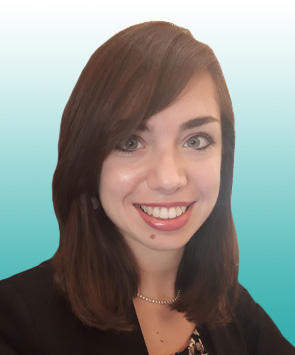
Short bio:
Sabrina Urgese graduated in Languages and Cultures for Business in 2013 at the University of Urbino “Carlo Bo” (PU)- Italy. After 5 years of professional experiences abroad (Northern Ireland, Australia, England, Scotland etc.), she decided to come back to Italy and started a new working adventure in STC as CEO Assistant in 2018. Since then, she has been gradually deepening her knowledge in the fascinating Lead Acid Battery Recycling field and one year ago, she has been included in the Sales and Marketing team as Back Office Assistant.

Paper to be presented:
New innovative route for the desulphurization of lead paste,
on Thursday, 10 June 2021, Session 5
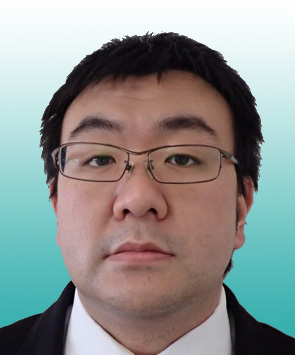
Short bio:
Dr. Akihiro Watanabe obtained a Bachelor of Engineering in 2011, and received a Master of Engineering in 2013 from Kanagawa University, Japan, and received a Doctor of Science from Tokyo Institute of Technology, Japan in 2017.
He joined the Furukawa Battery in 2017. He is now research engineer of R&D department.

Paper to be presented:
Effect of curing temperature on performance of PAM using 4BS crystal,
on Wednesday, 9 June 2021, Session 3
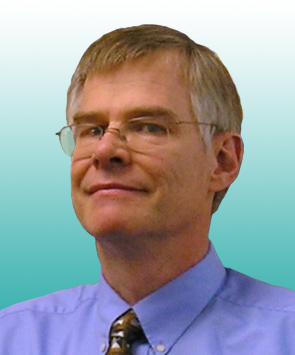
Short bio:
John Wertz is Chief Scientist for Hollingsworth and Vose Energy Solutions Division. Previously at H&V John has led advanced product development teams in Battery Separator, Paste Additives, Fuel Carbon Composites, Liquid filtration, Air Filtration and Nanofiber media. Prior to joining H&V nineteen years ago, he spent 15 years in battery and electrochemical capacitor design and development with Johnson Controls (Now Clarios), General Motors and Trojan Battery Company. John is a Certified Project Management Professional and was educated in Chemistry, Engineering Technology and Chemical Engineering from Carroll University (Wisconsin), the Milwaukee School of Engineering and Wayne State University (Detroit).

Paper to be presented:
Advancing Dynamic Charge Acceptance by using functionalized pasting paper for the negative electrodes,
on Wednesday, 9 June 2021, Session 3

Short bio:
Mr. Tristan Woeffler studied at the University of Cologne (Germany) and worked several years at SSP Consulting engineers in Köln. As one of the co-founder’s sons he grew up along with Inbatec GmbH, worked there during his studies - gradually deeping his knowledge of formation processes - and initiated the next generation in the company. In the beginning of 2020, he accompanied the Inbatec-Kustan partnership and became head of the sales department and key account manager.

Paper to be presented:
News and optimization on formation with acid recirculation technology,
on Wednesday, 9 June 2021, Session 3
Dr.Sc. Liudmila Yolshina
Institute of High-Temperature Electrochemistry, Russia
LEAD-ACID BATTERY TECHNOLOGY
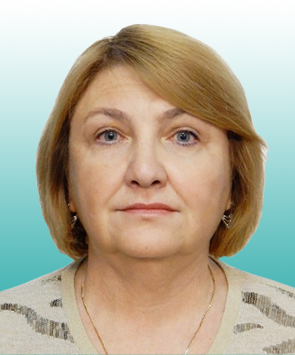
Short bio:
Dr. Liudmila Yolshina defended PhD degree in Electrochemistry in 1988 and a Doctors Degree of Chemical Sciences in Electrochemical Technology in 2011 at Institute of High-Temperature Electrochemistry Urals Branch of Russian Academy of Sciences. From January 2015 till now she is the Head of Power Sources laboratory at the same institute. Scientific interests of Dr. Yolshina are in high-temperature corrosion, electrochemical molten salts synthesis of graphene and graphene-derived compounds, their applications in power sources and development of lead-acid batteries and aluminum-ion batteries.

Paper to be presented:
Lead-tin-graphene composite with excellent corrosion-electrochemical and mechanical properties,
on Friday, 11 June 2021, Session 7
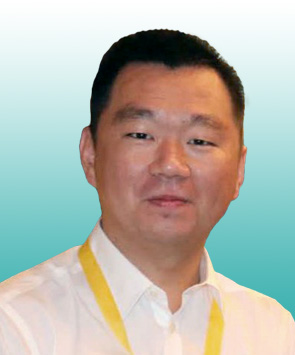
Short bio:
WenLi Zhang is now a professor in the School of Chemical Engineering and Light Industry, Guangdong University of Technology, China. Under the supervision of Prof. HaiBo Lin, he obtained B.Eng. from Jilin University, China, in 2011, and Ph.D. in Physical Chemistry from Jilin University, China, in 2017. He was a post-doctoral fellow in Prof. Husam Alshareef's group at King Abdullah University of Science and Technology (KAUST), Kingdom of Saudi Arabia from 2017-2020. Currently, his research interests focus on sustainable carbonaceous materials for rechargeable batteries, such as lead-acid batteries and metal-ion batteries (lithium, sodium and potassium).

Paper to be presented:
Lead-Carbon battery negative electrodes: mechanism & materials,
on Thursday, 10 June 2021, Session 5

